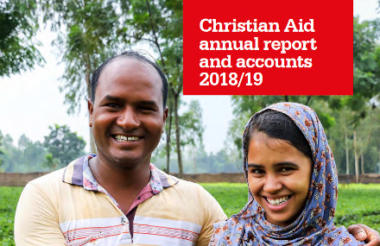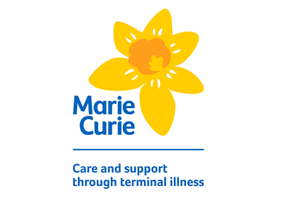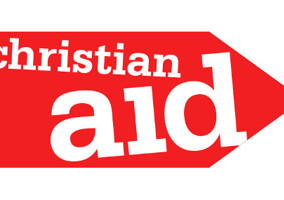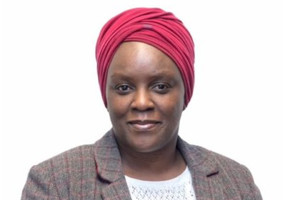Christian Aid's total income has increased to £120.4m, but donations from individuals fell by 9 per cent, according to its most recent accounts for the year to 31 March 2019.
Income from donations from individuals was down 9 per cent, from £54.7m to £49.7m. Meanwhile institutional grants increased by 7 per cent, £58m to £62m.
The report suggests that the decrease in individual giving is reflective of “a challenging fundraising environment, together with a lower number of high-profile appeals”.
It noted that income raised as part of Christian Aid Week campaign has fallen and said it planned to look at how it could turn this around using new technology.
"Decline in returns from the traditional house-to-house collections is a key driver of the reduced income from Christian Aid Week," the report said. "We are looking at innovative ways to arrest this decline, including the introduction of contactless giving in Christian Aid Week 2019."
"Changes in the economic environment are also impacting the recruitment of regular givers. We are testing digital channels as part of our plans to support this income stream.
"Our focus on legacies has delivered 13 per cent growth and we expect legacies to remain an important source of income."
'Cash position remains strong'
Christian Aid’s net asset position has declined by 5 per cent to £48.5m, but says its cash position “remains strong”. Restricted funds at £23.9m are in line with funds from last year. The report states “unrestricted income has remained relatively static, yet the costs and investment required to support our work have grown, resulting in a net overall deficit on unrestricted funds in the current year.”
Operating reserves stood at £22m, which is above the target range of £14m to £18m. The report states that trustees are working to a three-year financial framework, “which is expected to return these reserves to their target range as part of the recently announced restructuring”.
New chief executive and strategy
Amanda Khozi Mukwashi became is chief executive at the charity in April 2018 and is its highest paid employee on a salary of £131,476.
This summer Christian Aid revealed it had a new global strategy Standing Together: For Dignity, Equality and Justice. Part of this includes cutting programmes in 12 countries, potentially putting up to 200 staff at risk.
In the foreword to the accounts, Rowan Williams, chair, said: "It has been a demanding year for the organisation, with all the challenges of new leadership and renewed strategic vision. I am confident that it has also been a year that has brought renewed energy in our determination to work more effectively, along with our partners, for the eradication of extreme poverty, dismantling its root causes, and enabling the voice and agency of the poor and marginalised to be fully realised."
As part of the restructure it is aiming to cut its operating costs by £7m per year, saying that it is subsidising the cost of some programmes.
The report said: "The need for us to streamline our work has also been accelerated by the financial realities which we face as an organisation. In recent years, we have experienced an increase in our restricted income and a decline in our unrestricted income. Increasingly, we have to subsidise the cost of international programmes, which are mostly funded by restricted income, out of our unrestricted income because the restricted donor funds do not cover all of the operating costs. This trajectory has been exacerbated by a continued increase in operating costs and other wider political and economic factors."
Gender pay gap
The report states 63 per cent of employees are female and 37 per cent male. "Our analysis indicates that we have a mean gender pay gap of 6.8 per cent in favour of male staff – an improvement on the 2017 figure of 7.5 per cent in favour of male staff. This is better than the national average of 17.9 per cent.”
It suggests that this gap was primarily driven by having substantially more female staff in lower pay quartiles.
|
Related Articles












